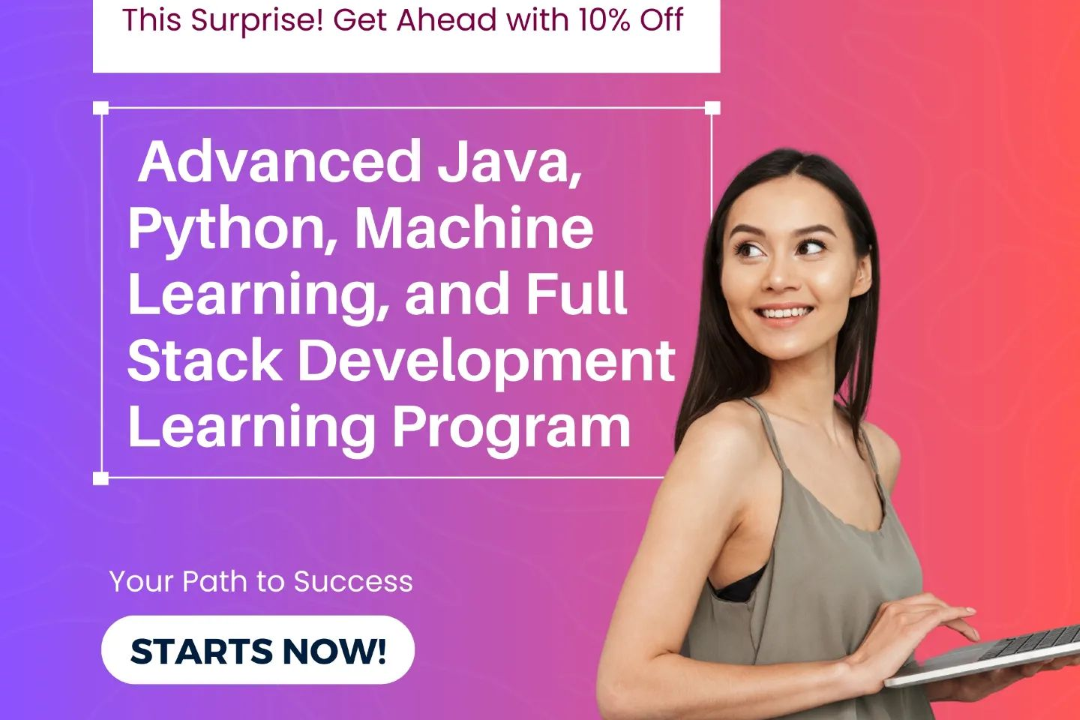Angular Interview Questions For 5 Year Experience
Intermediate Angular Interview Questions for Candidates with 5+ Years of Experience
Angular Interview Questions For 5 Year Experience
Angular interview questions for candidates with 5 years of experience delve into advanced aspects of the framework, testing their proficiency in complex concepts such as routing, dependency injection, state management, and scalability. By assessing candidates' knowledge of these topics, interviewers can gauge their ability to design and implement robust and maintainable Angular applications that meet the demands of production environments. Furthermore, these questions help identify candidates with a deep understanding of Angular's unique features and best practices, ensuring that they can contribute effectively to high-performance development teams.
To Download Our Brochure: https://www.justacademy.co/download-brochure-for-free
Message us for more information: +91 9987184296
1 - Explain the Angular component lifecycle hooks.
Answer: Angular provides lifecycle hooks that allow developers to perform specific actions at different stages of a component's lifespan, such as `ngOnInit`, `ngOnChanges`, and `ngOnDestroy`.
2) Describe the difference between a service and a directive in Angular.
Answer: Services are reusable, singleton classes that provide functionality across the application, while directives enhance the behavior or appearance of DOM elements within templates.
3) What is the purpose of dependency injection in Angular?
Answer: Dependency injection is a mechanism that allows Angular to automatically instantiate and provide dependencies to components and services, ensuring loosely coupled and maintainable code.
4) Explain the concept of data binding in Angular.
Answer: Data binding is a technique that automatically updates the DOM when the underlying data model changes, providing a seamless connection between the application state and the UI.
5) Describe the change detection algorithm in Angular.
Answer: Angular uses a change detection algorithm called “zone.js” to efficiently detect changes in the application state and update only the affected parts of the DOM.
6) What are the benefits of using TypeScript in Angular development?
Answer: TypeScript provides type safety, code navigation, and improved code quality by preventing errors and facilitating debugging.
7) Explain the concept of routing in Angular.
Answer: Routing allows for dynamic navigation between different views and components within an Angular app, ensuring a seamless user experience.
8) Describe how to handle HTTP requests in Angular.
Answer: Angular provides the `HttpClient` service to make HTTP requests, allowing for asynchronous data fetching, error handling, and response parsing.
9) What are the best practices for writing secure Angular applications?
Answer: Security best practices for Angular include using Angular security features, implementing cross site scripting (XSS) prevention, and following secure coding principles.
10) Explain how to test Angular components using unit testing.
Answer: Unit testing in Angular involves creating isolated tests for individual components, verifying their behavior and interactions using frameworks like Jasmine and Karma.
11 - Describe the role of observables in Angular.
Answer: Observables are a powerful mechanism in Angular for handling asynchronous data streams, providing a way to subscribe to events and receive updates in a reactive manner.
12) Explain the difference between AoT and JIT compilation in Angular.
Answer: AoT (Ahead of Time) compilation converts Angular templates into JavaScript during build time, improving application performance, while JIT (Just in Time) compilation happens at runtime, allowing for dynamic template generation.
13) Describe how to implement lazy loading in Angular.
Answer: Lazy loading allows for on demand loading of modules, reducing initial application size and improving performance by only loading necessary modules when needed.
14) Explain the concept of view encapsulation in Angular.
Answer: View encapsulation in Angular allows components to control how their styles are applied, preventing styles from bleeding into other components and ensuring encapsulated styling within components.
15) Describe the role of NgModules in Angular.
Answer: NgModules are modular containers that group related components, directives, pipes, and services, allowing for code organization, reusable code, and application level configuration.
Increase Your Rank and Earn Points
Active Participation:
- Engage in Discussions: Join conversations, share your thoughts, and respond to others.
- Create Quality Content:* Share informative posts, articles, or videos that contribute to the community.
- Help Others:* Answer questions, provide assistance, and share your expertise.
- Networking and Relationships:
- Build Connections:* Reach out to other users, introduce yourself, and form relationships.
- Join Groups:* Participate in groups related to your interests and engage with members.
- Collaborate with Others:* Team up on projects, share resources, and promote each other's content.
- Quality Contributions:
- Proofread and Edit:* Ensure your content is well written, grammatically correct, and visually appealing.
- Provide Citations:* Support your statements with references and credible sources.
- Offer Unique Insights:* Share fresh perspectives and original ideas that add value to the community.
- Engagement and Consistency:
- Be Active Regularly:* Consistently participate in the platform to increase your visibility and build credibility.
- Respond to Comments:* Engage with those who comment on your posts and demonstrate that you value their input.
- Share Evergreen Content:* Post timeless content that remains relevant and valuable over time.
- Community Involvement and Outreach:
- Attend Virtual Events:* Participate in webinars, workshops, or online gatherings to connect with the community.
- Promote the Platform:* Share the platform with others and encourage them to join and contribute.
- Be a Community Ambassador:* Help maintain a positive and welcoming environment for all members.
- Additional Tips:
- Set Realistic Goals:* Don't try to earn too many points at once. Focus on quality over quantity.
- Use Analytics:* Track your progress and identify areas where you can improve your contributions.
- Be Patient:* Building a strong reputation and earning points takes time and effort.
- Course Overview
- This course is designed for experienced Angular developers with 5+ years of experience who are preparing for interviews. It covers essential Angular concepts, popular interview questions, and advanced topics such as TypeScript, NgRx, and common design patterns. Through real-world scenarios and interactive exercises, you'll enhance your understanding and boost your confidence in tackling technical challenges during interviews.
- Course Description
- Master the essential concepts and prepare for advanced Angular interview questions tailored for candidates with 5+ years of experience. This course covers advanced techniques, performance optimization, testing methodologies, architecture principles, and real-world scenarios to equip you with the knowledge and confidence needed to excel in your next Angular interview.
- Key Features
- 1 - Comprehensive Tool Coverage: Provides hands-on training with a range of industry-standard testing tools, including Selenium, JIRA, LoadRunner, and TestRail.
- 2) Practical Exercises: Features real-world exercises and case studies to apply tools in various testing scenarios.
- 3) Interactive Learning: Includes interactive sessions with industry experts for personalized feedback and guidance.
- 4) Detailed Tutorials: Offers extensive tutorials and documentation on tool functionalities and best practices.
- 5) Advanced Techniques: Covers both fundamental and advanced techniques for using testing tools effectively.
- 6) Data Visualization: Integrates tools for visualizing test metrics and results, enhancing data interpretation and decision-making.
- 7) Tool Integration: Teaches how to integrate testing tools into the software development lifecycle for streamlined workflows.
- 8) Project-Based Learning: Focuses on project-based learning to build practical skills and create a portfolio of completed tasks.
- 9) Career Support: Provides resources and support for applying learned skills to real-world job scenarios, including resume building and interview preparation.
- 10) Up-to-Date Content: Ensures that course materials reflect the latest industry standards and tool updates.
Benefits of taking our course
Functional Tools
1 - Angular Interview Questions for 5 Year Experience
This course provides a comprehensive guide to preparing for Angular interviews for candidates with 5 years of experience. It covers topics such as core Angular concepts, advanced component development, and testing.
2) Tools Used in the Course
Angular CLI: Used to create, build, and test Angular applications.
VS Code: A popular code editor with built in support for Angular development.
Angular Material: A library of reusable UI components for building consistent and accessible Angular applications.
RxJS: A library for reactive programming that simplifies handling asynchronous events in Angular.
Jasmine and Karma: Testing frameworks specifically designed for Angular applications.
3) Offering Training Program to Students
Course Structure: Design a structured course curriculum covering fundamental Angular concepts, best practices, and advanced techniques.
Expert Instructors: Hire experienced Angular professionals to deliver the training and provide hands on guidance.
Hands On Labs: Incorporate interactive labs and exercises to allow students to apply their learnings in real time.
Project Based Learning: Assign projects that require students to build complete Angular applications, fostering both theoretical understanding and practical implementation skills.
Networking Opportunities: Provide networking events and connect students with industry professionals to enhance their career prospects.
Increase Engagement
- Create valuable content: Post articles, videos, and images that your target audience will find informative, entertaining, or inspiring.
- Engage with followers:* Respond to comments, ask questions, and start discussions to build relationships.
- Host contests and giveaways:* Offer prizes or incentives to encourage people to interact with your content.
- Use relevant hashtags:* Including popular hashtags in your posts will increase their visibility and reach a wider audience.
- Optimize Your Profile
- Use a clear profile picture:* Choose an image that represents your brand or personality and is easily recognizable.
- Write a compelling bio:* Briefly describe who you are, what you do, and why people should follow you.
- Add a call to action:* Encourage followers to visit your website, subscribe to your email list, or follow you on other social media platforms.
- Use Analytics and Optimization
- Track your metrics:* Use analytics tools to monitor your posts' performance, engagement rates, and audience demographics.
- Optimize your content:* Based on your analytics, identify what type of content performs best and tailor your future posts accordingly.
- Run experiments:* Try different post formats, timings, and hashtags to determine what resonates most with your audience.
- Collaborate with Others
- Partner with influencers:* Reach out to influencers in your industry and collaborate on content that will appeal to both your audiences.
- Guest posting:* Write guest posts for other blogs or websites to gain exposure and build credibility.
- Attend industry events:* Network with other professionals and promote your social media presence at conferences and meetups.
- Utilize Paid Advertising
- Run ads:* Consider using paid advertising to target specific demographics, increase your reach, and drive traffic to your profile.
- Use targeted campaigns:* Tailor your ads to the interests and behaviors of your target audience to maximize their effectiveness.
- Promote your content:* Use paid advertising to promote your best content and reach a wider audience.
- Additional Tips
- Be consistent:* Post regularly and at optimal times to keep your followers engaged.
- Use social media scheduling tools:* Plan and schedule your posts in advance to maintain a regular posting schedule.
- Analyze your competitors:* Research what content and strategies your competitors are using to identify opportunities for differentiation.
- Stay up to date with trends:* Social media platforms are constantly evolving, so stay informed about new features and best practices.
- Be patient and persistent:* Building a strong social media following takes time and effort. Be consistent with your content and engagement, and you will gradually see results.
Browse our course links : https://www.justacademy.co/all-courses
To Join our FREE DEMO Session: Click Here
This information is sourced from JustAcademy
Contact Info:
Roshan Chaturvedi
Message us on Whatsapp:
Email id: info@justacademy.co












